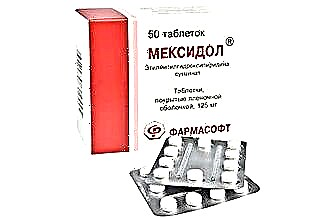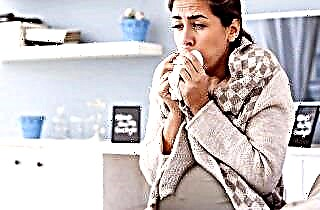Hypertension is a very common condition. It affects people of any age and gender. It is very difficult to completely protect yourself from dangerous factors that surround you from all sides. To do this, you need to radically reconsider life: behavior, inclinations, regime, nutrition, rethink values. Very few are ready for such serious steps, therefore almost anyone can be called a potential victim of hypertension. Anyone who has already joined the ranks of hypertensive patients first of all asks: is it possible to completely cure hypertension?
Is hypertension forever?
It is generally accepted that hypertension is incurable. Is it really? Before answering a similar question, let's define the concept and related terms. Hypertension is a disease characterized by a chronic increase in blood pressure. Arterial or blood pressure is the force with which blood presses against the walls of blood vessels.
It increases from time to time, and sometimes it stays constant. Indicators of high blood pressure also vary, sometimes these are minor deviations from the norm, and sometimes they reach a critical level. In the event that we are talking about constant and very high pressure, which is difficult to treat, they mean hypertension.

Distinguish between hypertension: essential (or primary) and symptomatic (secondary). The primary does not have a clear cause, it is caused by a combination of certain factors to which any person is exposed. People with a genetic predisposition are most at risk. Secondary refers to hypertension, which arose against the background of another disease. Then persistent hypertension is correctly called one of its symptoms.
The disease is closely related to disruption of the cardiovascular system. It forms a vicious circle: frequent bouts of increased pressure provoke pathological changes in the vessels and heart muscle, and vice versa, cardiovascular diseases lead to an increase in indicators.
A particularly dangerous condition called a hypertensive crisis. In this case, sharp pressure drops are observed, which cause prolonged vasospasm and, as a result, oxygen starvation of tissues, a deficiency of nutrients in the body.
Is this disease treatable? It is possible to speak of a complete cure of essential hypertension only at the first two stages of the development of pathology. There are three stages of hypertension: early (mild, mild), medium and severe. If the early period is diagnosed, it is easiest to cope with the disease, there are more chances to defeat it forever. You don't even have to use drug therapy for this.
For the disease to go away, it is enough to adjust the lifestyle, excluding harmful factors from it.
Is it possible to cure an ailment of a symptomatic nature? In the case of secondary hypertension, the chances of recovery are greater, especially if it has not taken on an irreversible malignant form. The main difficulty is to detect the underlying disease in time. If the treatment of the disease that caused the symptomatic hypertension is successful, the pressure is completely normalized.
The first stage of hypertension is different in that it is difficult to detect. Therefore, early detection is the key to complete recovery. The pressure rises slightly and periodically, the indicators are kept within the range (140 / 90-159 / 100). There are practically no symptoms, with the exception of minor manifestations:
- sometimes a little headache;
- fatigue appears more often than usual;
- having trouble sleeping;
- occasional dizziness or nosebleeds occur;
- bouts of irritability.
If you do not catch the disease at this moment, then later you will have to live with it all your life.
In rare cases, the disease is cured at the second stage. Although this can hardly be called a complete cure for the disease. Signs of pathology disappear for a long time, but there is always a fear that they will again make themselves felt. In such a situation, a person must learn to live differently, not give the disease a chance to return. Even if you do not have to constantly take medications, the "former" hypertensive patient should always be on the alert.
 The second stage is characterized by severe symptoms:
The second stage is characterized by severe symptoms:
- insomnia;
- severe and frequent headache;
- nausea, vomiting;
- heart rhythm disturbances;
- pain in the region of the heart;
- vision problems;
- numbness of the limbs.
Undergo pathological changes: kidneys, heart, brain, organs of vision suffer. The pressure almost does not return to normal without medication, the indicators become higher (160 / 100-179 / 109).
Secondary hypertension manifestations
Since secondary hypertension is a syndrome of another disease, it shows itself somewhat differently. Symptoms of concomitant pathology are added to the usual signs of the disease. These include:
- kidney disease (back pain, protein in the urine, swelling);
- cardiovascular diseases (heart pain, arrhythmia, shortness of breath);
- disorders of the endocrine system (there is a characteristic fullness in the face and body, while the arms and legs are thin);
- diseases of the central nervous system (nausea, dizziness, loss of memory, coordination).
In addition to the signs of these diseases, specific indicators indicate secondary hypertension: persistent arterial hypertension, no result from the therapy used, panic attacks.
How to get well?
If hypertension develops as an independent disease (primary), medications will not be needed for its successful treatment at an early stage. How to defeat the disease? The most effective remedy is to remove all provoking factors from the patient's life. In addition, blood pressure is normalized with the help of traditional medicine and other alternative methods of treatment.
Factors that exclude:
- inaccuracies in the diet;
- lack of physical activity;
- increased stress on the psychoemotional system;
- physical stress;
- the use of alcoholic beverages and tobacco products.
There are situations when it is impossible to eliminate the provoking factor, or it is difficult to do it. This happens with the development of a special form of hypertension: drug. In this case, high blood pressure occurs as a side effect of taking certain medications. It is advisable to remove such funds or find an alternative to them, then hypertension will disappear by itself. If this cannot be done, the dosage and dosage regimen are reviewed, it may be worthwhile to pause for a while.
Patient Conduct
Food is a livelihood, a way to keep the body healthy. Therefore, proper nutrition is a very important component of any medical complex.
What is not desirable:
- salt - it is enemy number 1 for hypertensive patients, since it is dietary sodium, and it retains fluid in the body and causes vasoconstriction; food is cooked without salt, and then a little bit of it is added to an already prepared dish;
- all foods containing a lot of salt (chips, crackers, sausages, smoked meat and fish, canned food, lard);
- fatty and fried foods are prohibited, as are foods containing animal fats; they have a lot of cholesterol, which is deposited on the walls of blood vessels;
- flour, confectionery and all kinds of sweets (buns, cakes, chocolate, creams, pies, sweets) - they add extra pounds, exacerbating the situation with pressure;
- strong tea or coffee is also excluded - these drinks tone the vessels, increasing the pressure;
- spicy foods excite the nervous system, triggering the production of adrenaline, which constricts the blood vessels.
How to enrich the diet:
- dairy products with a reduced fat content;
- vegetable oil;
- fresh fruits and vegetables;
- dried fruits;
- foods rich in heart-strengthening potassium (raisins, bananas, prunes, melons, tomatoes, beans, seaweed);
- steamed food;
- vegetable soups instead of meat broths;
- lean meat (turkey, chicken, veal);
- lean fish;
- foods containing a lot of magnesium (cabbage, potatoes "in their uniforms", rose hips, bran bread, walnuts, currants, herbs, oat porridge, millet, buckwheat, rice);
- vitamin C, which is abundant in sea buckthorn, lemons, oranges, grapefruits, currants.
Regular physical exercise strengthens the endurance of the heart, trains blood vessels, increasing their elasticity. Physical activity improves blood circulation, saturates the blood with oxygen, accelerates metabolism, and eliminates excess weight.
All this is very important for maintaining normal blood pressure.
To combat hypertension, the following types of physical activity are suitable:
- morning work-out;
- physiotherapy;
- stretching;
- walking;
- cyclic exercises (jogging, cycling, swimming, skiing).
Any physical activity should be regular, long (30-40 minutes a day), not excessive. Strength exercises that are associated with lifting weights, static loads, sudden movements should be excluded.
Adequate rest is important for the normal functioning of human internal organs and systems. Overwork negatively affects the work of the heart and blood vessels: the heart muscle weakens, blood vessels lose elasticity. Rest means a change of activity, physical and emotional relief.
Weekends or vacations should be spent with benefits for the body and mind. Rest should be active (hiking, fishing, cycling). It is worth visiting museums, theaters, cinemas, exhibitions more often, being outdoors, breathing fresh air, admiring beautiful landscapes. The best option is to recuperate in a medical resort, in a sanatorium, in places that are located in the same climatic zone with the territory of residence.
While resting, one should not think about problems, work, household chores. The ability to relax and distract yourself builds resilience to stressful situations. Sleep also helps to restore strength after a long day of work, full of conflicts, problems, family troubles and physical stress. Lack of sleep, a person overloads the nervous system, which is directly involved in the regulation of blood pressure levels.
You need to sleep in moderation, at least seven hours a day. For a sound sleep, it is necessary to ventilate the sleeping area, create favorable conditions (silence, twilight, make a comfortable bed). It is advisable to quietly walk before this in the fresh air. If it is difficult to fall asleep, take an herbal sedative (motherwort, valerian).

In order not to become a victim of hypertension, it is very important to radically change the perception of life, to correctly prioritize. No wonder they say: if you cannot change circumstances, change your attitude towards them.
Indeed, many health problems begin with prolonged and frequent stress. Depression is a poor ally in the fight against disease. Dissatisfaction with life, low self-esteem, envy, anger, resentment, the desire to see everything in a bad light oppress the nervous system, lead to its excessive excitement or inhibition, apathy. Stress hormone - adrenaline, causes vasospasm, thereby worsening their condition. After strong experiences, a person feels heaviness and pain in the heart, but it regulates the strength of the blood flow in the vessels.
One must live with optimism, a smile, be able to find positive sides in everything, not take problems that arise to heart. It is important to find your own ways to relax, restore mental balance, and get positive emotions. In the frantic rhythm of modern life, know how to pause, take a breath. If negativity accumulates without finding a way out, it destroys health from the inside.
Tobacco products and alcoholic beverages increase blood pressure, worsen the condition of blood vessels, overload the heart, and lead to the accumulation of toxic substances. If your goal is to get rid of hypertension forever, be sure to quit smoking. But this should not be done abruptly, but gradually. When the body has already adapted to the daily "doping", an unexpected change in habits will lead to another stress, which is again fraught with an increase in performance.
Alcohol in moderate doses is believed to be harmless and even beneficial. But it is difficult to adhere to the framework in this matter, there is always a risk of crossing the fine line, beyond which a slow but sure destruction of health will begin. Even a small but regular consumption of alcohol over time leads to alcoholism. Therefore, it is better not to take any half measures: a complete, decisive and irrevocable rejection of alcoholic beverages.
Treatment
Can secondary hypertension be cured? In order to permanently rid oneself of hypertension, which arose against the background of the underlying disease, it is necessary, first of all, to detect it. A complete examination, visits to various specialists will lead to the desired results.
Having established an accurate diagnosis, they are determined with the form of the disease. If the disease is amenable to drug treatment, then it is enough to complete the prescribed course with the help of pills, injections and other methods. With a successful outcome of therapeutic measures, pressure is forgotten forever.
Most often, there is a need for surgical intervention due to health problems. The decision about the operation is made when a person's condition threatens his life. For example, with stenosis (narrowing) of a section of an artery, congenital or acquired, reaching critical limits (the lumen is narrowed by 50% or more). In this situation, a deterioration in blood flow leads to secondary arterial hypertension, while the heart and blood vessels are affected, and tissues of other organs (kidneys, eyes, brain) are destroyed.
Is it possible to get rid of hypertension permanently with the help of surgery? The operation to remove the problem area and the plastic of the damaged vessel will help to end the high blood pressure forever, but only if it is carried out in a timely manner.
Living with hypertension
If the disease progresses, and it cannot be completely cured, accept the diagnosis, learn to live with it.
The lifestyle of hypertensive patients is different from the existence of a healthy person. What is he? Ideally, a person suffering from hypertension should comply with a number of requirements:
- Switch to a different diet - a salt-free diet, a different way of cooking (products are boiled, stewed, steamed), give up tasty, but unhealthy food, pamper yourself not with sweets and smoked meats, but with fruits, vegetables, nuts.
- Quit bad habits.
- Provide regular, moderate physical activity.
- Do auto-training or use other available ways to relax and increase stress resistance (communicating with pets, doing quiet dancing, reading, movies, music, hobbies, travel). To radically reconsider the relationship with the outside world and with oneself.
- Control your weight.
- Monitor pressure.
- Adhere to the doctor's recommendations, take the prescribed medication in the prescribed dose according to a certain scheme.
- Many hypertensive patients are meteorological, therefore, monitor the state of the weather and take the necessary precautions - prepare in advance for possible hypertensive crises.
- Patients should not be hypothermic, also avoid prolonged exposure to the sun.
- It is not recommended to drastically change the climate.
- It is better to give up the conquest of the mountains and the depths of the ocean; a vacation at the Dead Sea would be an excellent alternative.
- Get enough sleep.
- Take care of a reasonable combination of work and rest.
- Monitor edema, and when it first appears, fight them (use diuretics).
In addition, hypertensive patients should always have a special first-aid kit on hand. The content of medicines in it: for relief of hypertensive crisis and daily intake. Here is an approximate list of essential medicines that you carry with you:
- Captopril, Lisinopril, Enalapril - ACE inhibitors; in case of a crisis, put a pill under the tongue and dissolve;
- "Metoprolol", "Anaprilin", "Atenolol" - beta-blockers; the crisis is relieved by intravenous injection;
- "Nifedipine" (under the tongue), "Verapamil" (intravenous) - vasodilator drugs;
- Furosemide (intramuscularly or intravenously for a quick effect);
- "Valerian", "Motherwort", "Peony" - sedatives;
- "Baralgin", "Pentalgin", "Citramon" - analgesics;
- "Semax" - regulatory peptides (stabilize the work of the brain and the whole organism, relieve the crisis).
You can live with hypertension for many years, a person gradually gets used to prohibitions and restrictions, and compliance with such rules is useful even for healthy people. Only early diagnosis and optimal lifestyle correction will stop the disease. To completely eliminate symptomatic hypertension, you may have to tune in to surgery.



